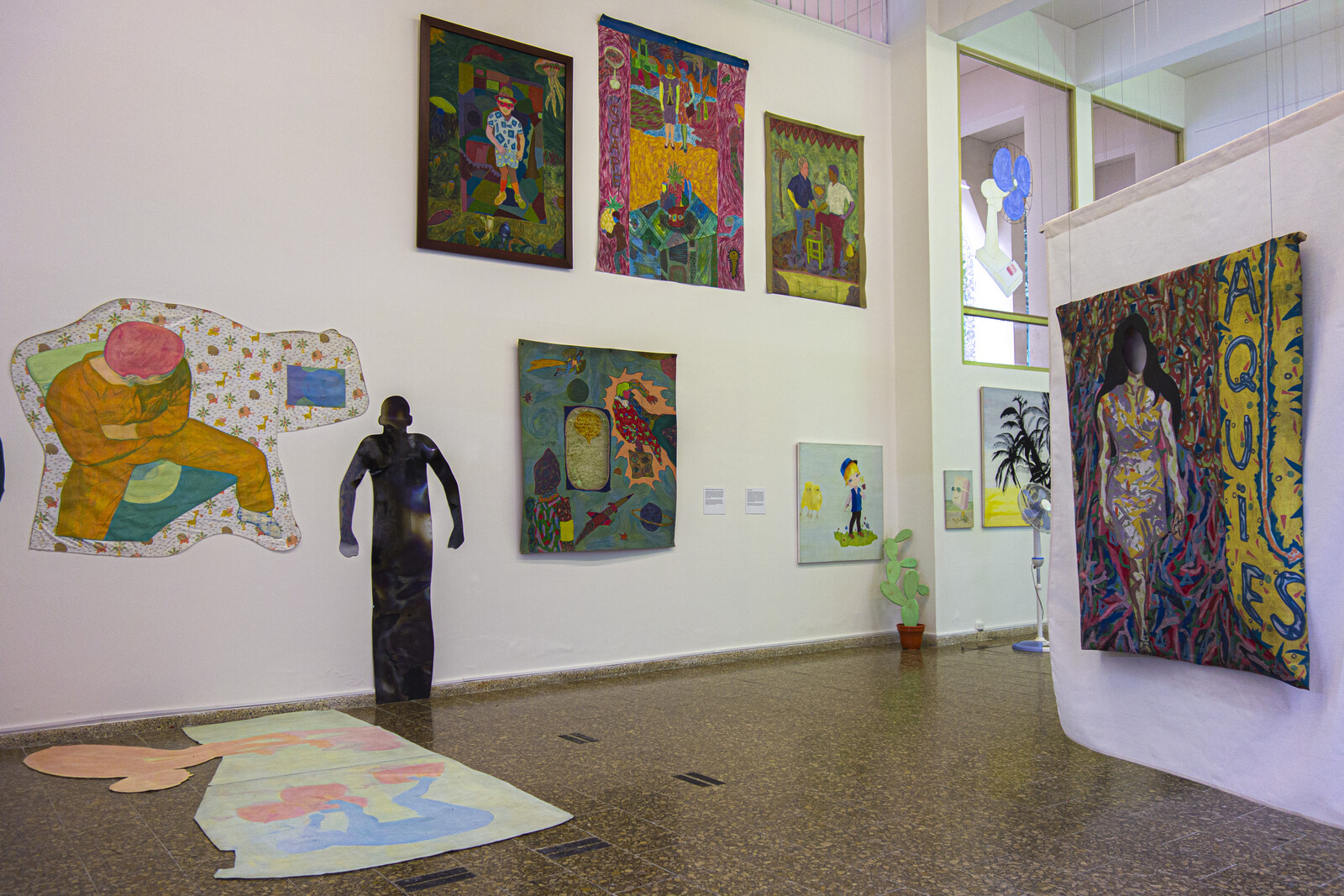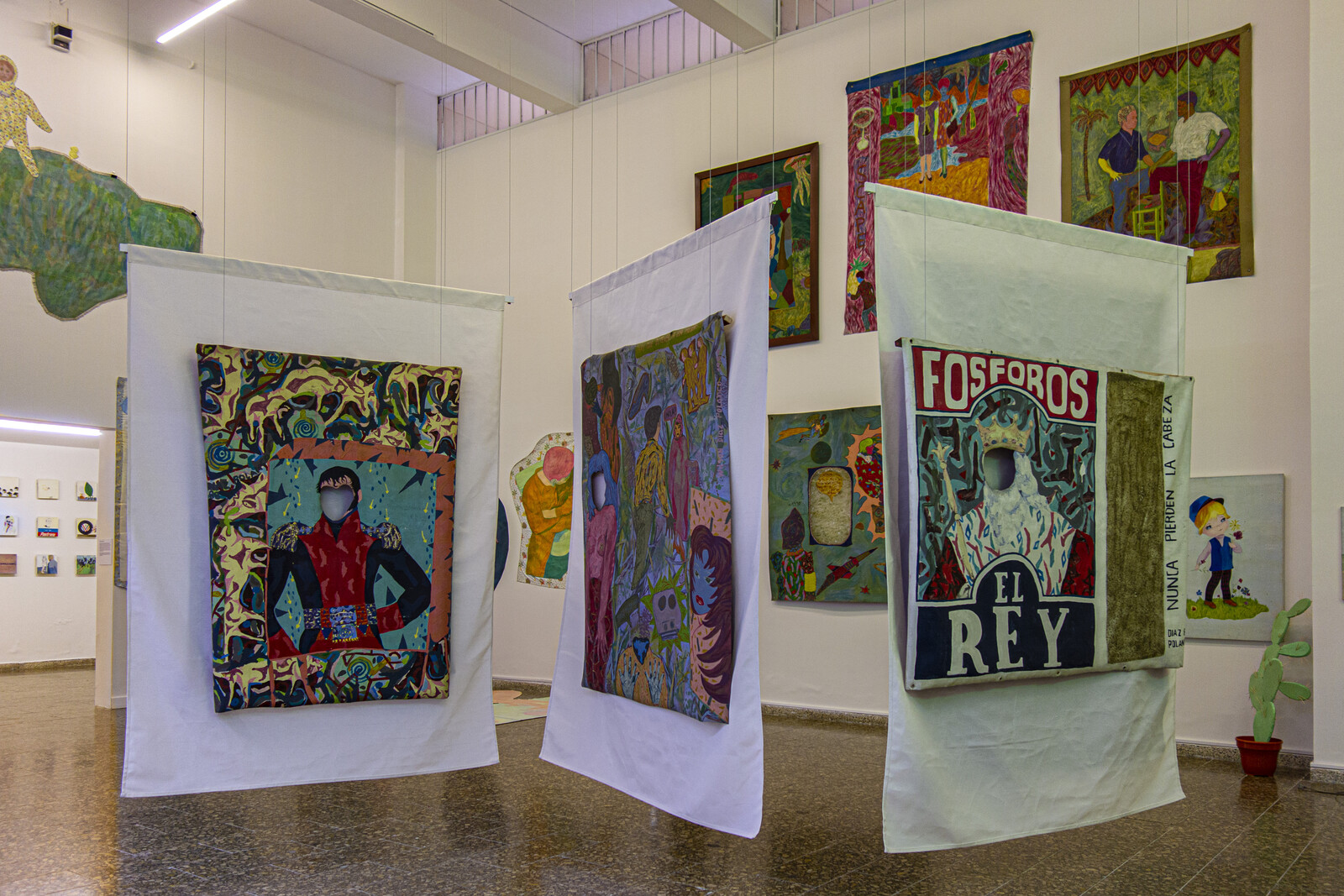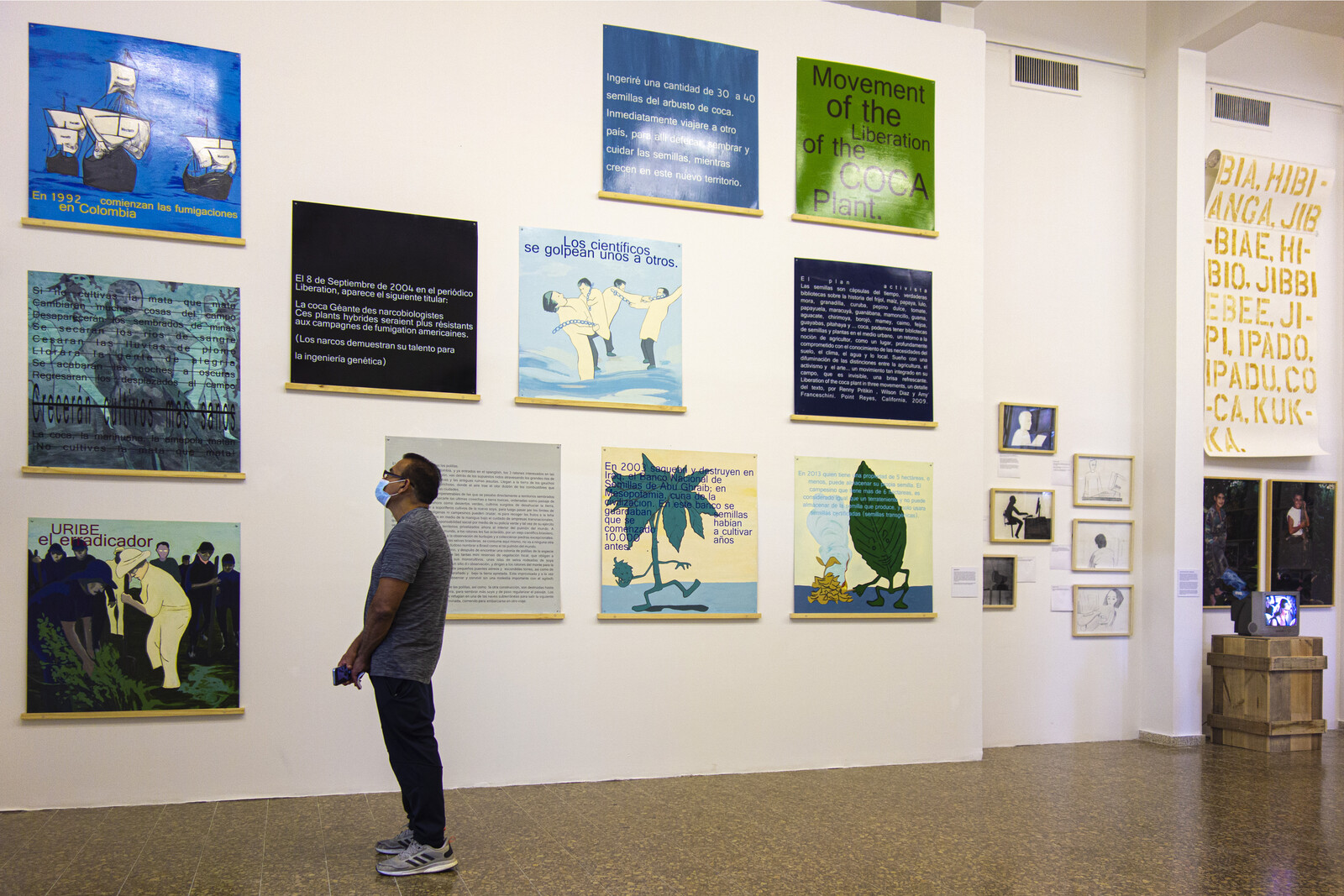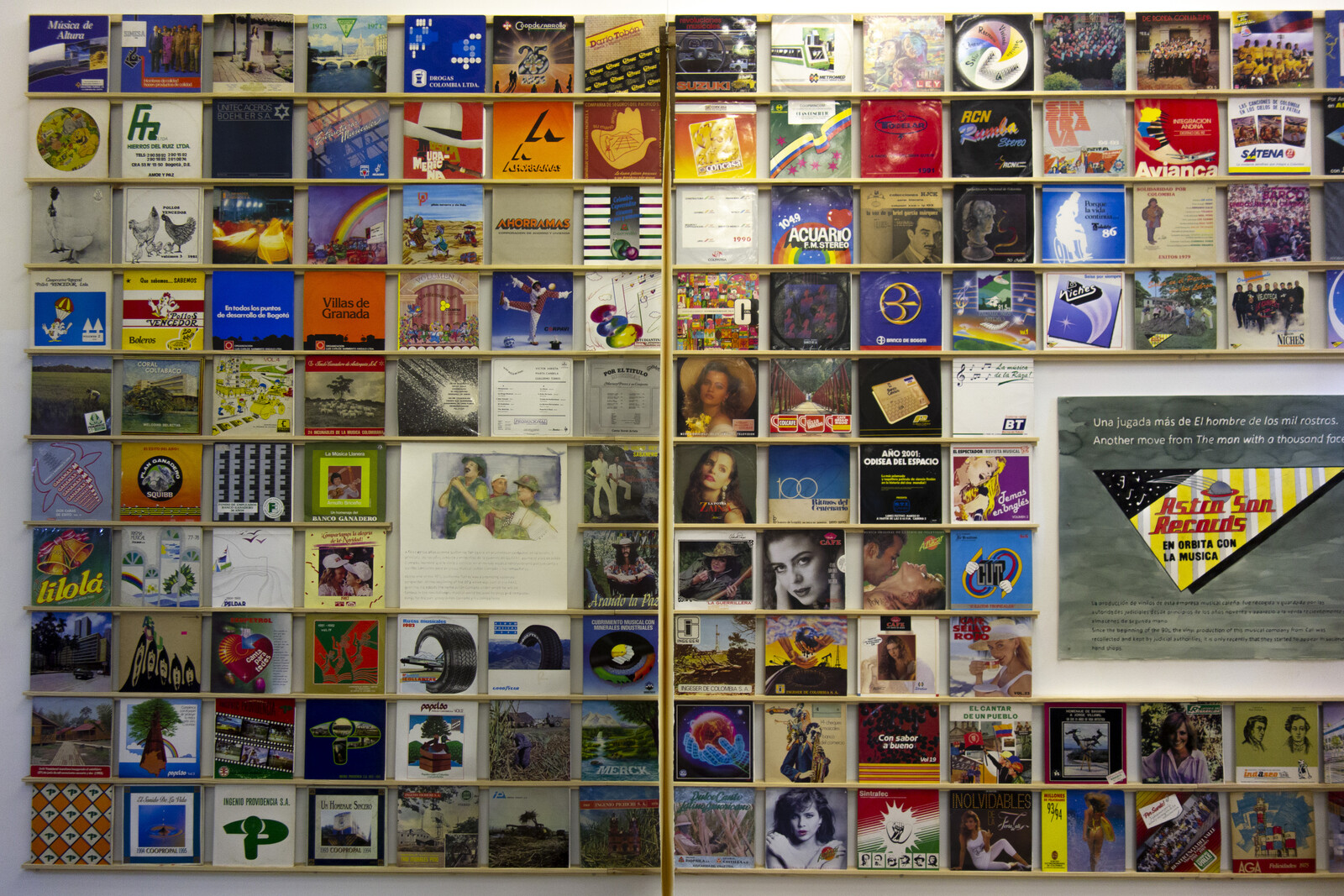Wilson Díaz speaks to a violent history with tenderness and humor. Born and raised in Pitalito Huila, a rural area in southern Colombia, and now based in Cali, the artist has witnessed the effect on daily life of drug trafficking and violent clashes between the government’s military, leftist guerillas, and right-wing paramilitaries. Since it began, in the 1990s, his career has coincided with a number of significant moments in the country’s recent history: the drug cartels’ increasing power and political influence, growing neoliberal economic policies, and the incessant US intervention as a result of, among other things, the so-called War on Drugs.
Díaz’s solo show at Cali’s Museo La Tertulia mostly comprises paintings and drawings, whilst the exhibition’s layout makes use of immersive installation. A line of newspaper clippings, reproduced on one-to-one scale with adhesive vinyl, covers several walls with images including military generals and politicians in staged photo-ops. One story describes a director of police intelligence who is also an amateur painter, depicted with smock and easel in his living room. Above are two small black-and-white easel paintings: one of Pablo Escobar, another of a military jeep surrounded by dead bodies—a reference to a 1989 state-sanctioned massacre at La Rochela, in which fifteen judicial officials investigating war crimes were killed.
A number of paintings depict guerillas and paramilitary groups posing for the camera like musicians in a band photo; these are placed beside paintings of actual Colombian bands. In one much larger painting a group of five armed men, draped with ammunition slings, stand around a man whose rifle points directly at the camera. In contrast, Los Ruinetas (2011) a similarly sized portrait of the band Los Ruanetas, depicts them hugging each other or their instruments and smiling energetically at the camera. A third untitled canvas from 2011, from the series “la flor caduca de la hermosura de su gloria,” shows a band in nondescript gray uniforms. In this case, two hold guitars like rifles pointed towards the viewer while a third holds an actual rifle in the same fashion. This could be a military band, or an imagined pastiche that riffs on the performativity of both musical bands and bands of soldiers.
A grid of over 150 LPs lines one wall. Díaz has been accumulating this collection, entitled Amarillismo [Sensationalism], since 2008. It includes a range of records including La Guerrila…y cambio su traje de encajes por la vieja carabina [The guerrilla who exchanged her lace dress for a carbine], the cover of which depicts a woman in green military fatigues, a wide-brimmed camouflage hat, and pink lipstick holding a rifle with immaculately painted nails. Hombres de Acero [Men of War] is the soundtrack to the US 1994 action film starring Dolph Lundgren as a mercenary, while James Baena’s Lamento de Un Artista [Lament of an Artist] depicts the artist dressed in green fatigues, a guitar in his right hand as he also clutches the door of a helicopter perched on a hilltop. As a whole, this collection shows how the saccharine and melodramatic elements in popular culture echo—and are sometimes an extension of—the propaganda that the government and other factions disseminate within Colombian political life. Díaz’s work suggests that music and its attendant visual culture allow him to examine the violent aspects of his country’s history without depicting that violence directly.
Díaz shot Los rebeldes del sur (The Southern Rebels, 2000–02), an 11-minute, single-channel video displayed on a small monitor, in the jungle, where he found Fuerzas Armadas Revolucionarias de Colombia (FARC) insurgents playing propaganda songs. They can be seen on a small outdoor stage playing accordion, bass, and guitar while the lead singer croons: “What a bunch of criminals… this is a state policy, and they talk about human rights while being the main violator.” The musicians wear green military fatigues, some with guns and ammunition strapped against their bodies as they play.
Performativity has long been a major part of Díaz’s practice. He is a founding member of the interdisciplinary, Cali-based collective Helena Producciones, who ran the city’s International Performance Festival from 1997 to 2012. In his own performances, he implicates himself in the narrative by using his own body, and in doing so calls attention to how politics is performed through mass media, music, journalism, and the archive. As evidenced in this exhibition, appropriation and pastiche are key to his practice, allowing him to reflect on historical trauma while maintaining a careful distance.





